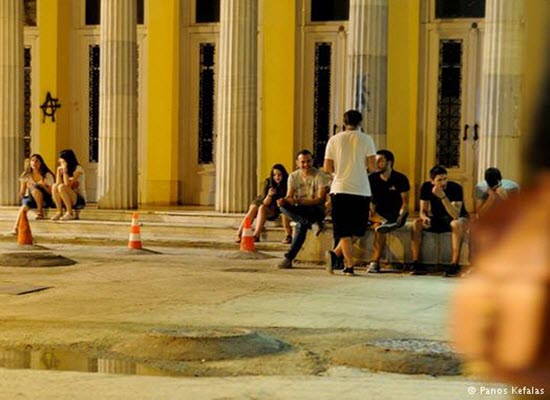
15-11-16 General Secretary of Lifelong Learning, Youth visits Berlin
Representatives of the Greek and German education ministries reached an educational cooperation agreement and agreed to extend talks on a Greek-German Youth Foundation.
The normalisation of Greek-German relations over many months is confirmed through cooperation on various issues, such as cooperation between the two education ministries. The education ministry’ Secretary for Lifelong Learning and Youth Pausanias Papageorgiou, in that context, visited the German Ministries of Research and Youth.
Memorandum of Understanding signed
The main topic discussed with German Deputy Education Minister Thomas Rachel was vocational education and training in Greece. Papageorgiou told Deutsche Welle that “in this area we already have a year of cooperation, culminating in the signing of a four year memorandum of understanding”.
The accord involves transferring German know-how on implementing a dual education system (studying and working at a business at the same time) in Greece.
A Greek-German pilot programme in tourism that began three years ago in Athens and Iraklio, Crete, was completed successfully.
“Since Greece is undertaking a major reform in vocational education and training, we decided to benefit from this cooperation, and to expand it and extend it,” Papageorgiou said.
Reform and a qualitative upgrading of vocational education is a Greek bailout deal commitment. The formation of a national strategy in this area is a precondition for Greece to receive EU ESPA funding (National Strategic Reference Framework) for this purpose.
After the summer submission of a national strategy, the Commission released the 320 million euros to which Greece is entitled through 2020. The first 120 million euros will begin to be disbursed in the summer of 2017. The funds will be used not only for technical equipment and books, but also to cover the salaries of student internships, which will be 75% of the minimum wage plus social insurance. In an interim period, ESPA will cover 50% of the wages.
The creation of the Greek-German Youth Foundation will be delayed for two years, not only because the Greek side is unable to cover its 50 % of the three million euro annual budget. The most serious obstacle is the different approach of the two sides.
Berlin initially envisaged a foundation similar to the ones it maintains with France and Poland, which are based on post-WWII reconciliation. This is not the focus of interest on the Greek side.
“We do not want that past to be discussed and resolved through current youth issues. We cannot burden the younger generation with the responsibility of solving issues of the past. This foundation or any other cooperation should pertain to the life of youth today and tomorrow – not yesterday,” Papageorgiou told Deutsche Welle.
The Greek side does not oppose youth visits to historical venues such as the martyr villages of Greece. But it wants the programmes to include a strong educational aspect such as learning a second language, culture, and athletics.
The German side must demonstrate understanding for the differences between youth organisations in the two countries.
In the current situation, the Greeks’ partners will be German civil society, while the partner of the Germans in Greece will be the education ministry. Papageorgiou noted that in Germany youth associations are on all levels truly autonomously organised.
In Greece, youth associations always were tinged by politics, not only in party youth groups. In universities, trade unions and elsewhere, party affiliation remains predominant.
“This was one of the issues we discussed with the German side. We said that to participate equally we must have the same social foundation. You cannot have a society on one side and a ministry on the other. That would not produce positive results, and they understand that,” Papageorgiou said.
The German and Greek sides have decided the issues they should discuss and resolve before the creation of the foundation.
Next March, pursuant to the Bad Honnef meeting in 2014, there will be a “Youth Forum” in Thessaloniki, with 50 representatives from each country.
